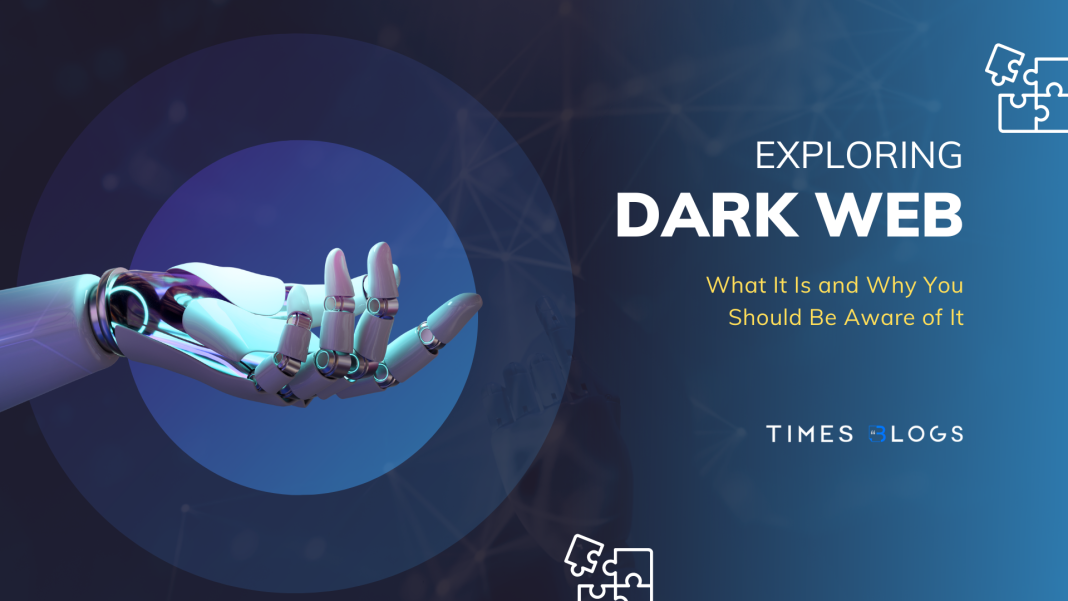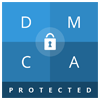The internet is a vast network of interconnected devices, and not all of it is visible or accessible to the general public. One of the hidden corners of the internet is the dark web, a collection of websites and services that are not indexed by search engines and require specific software or configurations to access. While the dark web has its legitimate uses, such as providing anonymity for whistleblowers, activists, or journalists, it is also a haven for illegal activities, such as drug trafficking, weapons sales, and cybercrime. In this article, we will explore what the dark web is, how it works, and why you should be aware of it.
What is the Dark Web?
The dark web is a subset of the deep web, which refers to any content that is not indexed by search engines. The deep web includes everything from private social media accounts, online banking, and academic databases to government archives and medical records. The dark web, on the other hand, is a part of the deep web that can only be accessed with specific software or configurations that allow users to remain anonymous and untraceable.
The most popular way to access the dark web is through the Tor network, which is short for The Onion Router. Tor is a free and open-source software that encrypts and relays internet traffic through a series of servers, making it difficult for anyone to track the origin or destination of the data. The Tor network also allows users to access websites with the .onion top-level domain, which is not recognized by regular browsers or DNS servers.
The content of the dark web varies widely, from legitimate services such as anonymous email, chat rooms, and forums to illegal activities such as drug markets, hitmen-for-hire, and child pornography. Some of the most well-known dark websites include:
- Silk Road – an online black market that specialized in selling illegal drugs, weapons, and counterfeit goods. Silk Road was shut down by the FBI in 2013, and its founder, Ross Ulbricht, was sentenced to life in prison.
- The Hidden Wiki – a directory of .onion sites that serves as a starting point for many dark web users.
- Empire Market – a successor to Silk Road that offers a wide range of illegal products and services, including drugs, stolen data, and hacking tools.
- The Pirate Bay – a popular torrent site that has a .onion mirror for users who want to download files anonymously.
- The Human Experiment – a disturbing site that claims to offer live human experiments for sale, although its authenticity is questionable.
How does the Dark Web work?
The dark web operates differently from the regular internet in several ways. First, it is designed to be anonymous and untraceable, so users can access it without revealing their identity or location. This is achieved through the use of encryption and a series of relays that bounce the traffic between servers, making it difficult for anyone to intercept or monitor the data.
Second, the dark web uses different protocols and technologies than the regular internet. While the internet relies on HTTP, FTP, and other protocols for transferring data, the dark web uses Tor, I2P, and other anonymous networks that prioritize privacy and security over speed and convenience.
Third, the dark web is largely unregulated and operates outside of the mainstream legal system. While some countries have laws that criminalize specific activities on the dark web, such as child pornography or drug trafficking, many other activities are not explicitly illegal, and law enforcement agencies often struggle to investigate or prosecute crimes that occur on the dark web.
Accessing the Dark Web
Accessing the dark web requires the use of special software, such as Tor (The Onion Router), which allows users to browse the web anonymously by bouncing their connection through a series of servers around the world. The Tor browser is free to download and can be used on most operating systems, including Windows, Mac, and Linux.
Once the Tor browser is installed, users can access the dark web by entering the URL of a hidden service into the browser’s address bar. Hidden services are websites that use the .onion domain, which is only accessible through the Tor network. These websites can be anything from online marketplaces to forums to chat rooms.
While using the Tor browser provides anonymity, it does not guarantee complete privacy. Law enforcement agencies have been known to use various techniques to track down and identify dark web users, such as analyzing network traffic and exploiting vulnerabilities in software.
Illegal Activities on the Dark Web
The dark web is notorious for being a haven for illegal activities, such as drug trafficking, weapons sales, and cybercrime. One of the most well-known examples of illegal activity on the dark web was the Silk Road, an online black market that operated from 2011 to 2013 and allowed users to buy and sell drugs, weapons, and other illegal items using Bitcoin.
While the Silk Road was eventually shut down by law enforcement, other online marketplaces have taken its place, such as AlphaBay and Hansa Market. These marketplaces operate in a similar fashion to the Silk Road, allowing users to buy and sell illegal items anonymously using cryptocurrency.
Cybersecurity Risks on the Dark Web
The dark web also poses a significant cybersecurity risk to unsuspecting users. Cybercriminals can use the dark web to buy and sell stolen data, such as login credentials, credit card numbers, and social security numbers. They can also use the dark web to sell malware, phishing kits, and other tools used in cyberattacks.
One of the most common types of cyberattacks on the dark web is phishing scams, where attackers trick users into revealing their login credentials or other sensitive information by sending them fraudulent emails or messages. These attacks can be difficult to detect, as the attackers often use social engineering tactics to gain the trust of their targets.
Disturbing Content on the Dark Web
Perhaps the most disturbing aspect of the dark web is the amount of disturbing content it harbors, such as child pornography, extreme violence, and gore. While accessing such content is illegal in most countries, it can still be found on the dark web, often hidden behind multiple layers of encryption.
Exposure to such content can have serious mental health consequences, such as anxiety, depression, and post-traumatic stress disorder (PTSD). Users who accidentally stumble upon such content may find it difficult to get help or support, as they may fear legal repercussions or social stigma.
Legitimate Uses of the Dark Web
While the dark web is often associated with illegal activities and disturbing content, it also has its legitimate uses. For example, it can provide a safe space for whistleblowers, activists, and journalists to communicate and share information without fear of surveillance or censorship.
The dark web is also used by law enforcement agencies to conduct undercover operations and gather intelligence on criminal activities. By posing as buyers or sellers on online marketplaces, law enforcement officers can gather evidence and identify suspects.
Why should you be aware of the Dark Web?
The dark web can be a dangerous place for unsuspecting users who stumble upon illegal or harmful content. Here are some reasons why you should be aware of the dark web and take steps to protect yourself:
- Illegal activities: As mentioned earlier, the dark web is a haven for illegal activities, such as drug trafficking, weapons sales, and cybercrime. Criminals can operate anonymously and evade law enforcement agencies, making it difficult to bring them to justice. By being aware of the existence of the dark web, you can be more cautious when using the internet and avoid getting involved in illegal activities.
One of the most well-known examples of illegal activity on the dark web was the Silk Road, an online black market that operated from 2011 to 2013 and allowed users to buy and sell drugs, weapons, and other illegal items using Bitcoin.
While the Silk Road was eventually shut down by law enforcement, other online marketplaces have taken it’s place, such as AlphaBay and Hansa Market. These marketplaces operate in a similar fashion to the Silk Road, allowing users to buy and sell illegal items anonymously using cryptocurrency. - Cybersecurity risks: The dark web is also a source of cybersecurity risks, such as malware, phishing scams, and identity theft. Cybercriminals can use the dark web to buy and sell stolen data, such as login credentials, credit card numbers, and social security numbers. By being aware of these risks, you can take steps to protect yourself, such as using strong passwords, enabling two-factor authentication, and avoiding suspicious links and emails.
One of the most common types of cyberattacks on the dark web is phishing scams, where attackers trick users into revealing their login credentials or other sensitive information by sending them fraudulent emails or messages. These attacks can be difficult to detect, as the attackers often use social engineering tactics to gain the trust of their targets. - Exposure to disturbing content: The dark web is home to some of the most disturbing content on the internet, such as child pornography, extreme violence, and gore. By stumbling upon such content, users can be traumatized and suffer from mental health issues. By being aware of the existence of the dark web and avoiding it altogether, you can protect yourself from exposure to such content.
- Legal consequences: Even unintentional involvement in illegal activities on the dark web can lead to legal consequences. For example, downloading illegal content, such as copyrighted material, can result in fines or even imprisonment. By being aware of the risks and avoiding illegal activities on the dark web, you can protect yourself from legal consequences.
How to Stay Safe on the Dark Web
If you choose to explore the dark web, there are several steps you can take to protect yourself and reduce the risks associated with it.
- Use a Virtual Private Network (VPN): A VPN is a tool that can help you hide your IP address and encrypt your internet connection, making it more difficult for anyone to track your online activity. When using the dark web, a VPN can add an extra layer of security and privacy.
- Use Tor Safely: While Tor provides anonymity and privacy, it’s not foolproof. It’s essential to configure Tor correctly and use it safely to avoid risks associated with the dark web. You should also avoid downloading files or clicking on links from unknown sources, as they may contain malware or lead to phishing scams.
- Use Antivirus and Anti-Malware Software: Make sure to install antivirus and anti-malware software on your device before exploring the dark web. These tools can help detect and remove malware or other malicious software that you may encounter.
- Be Careful What You Click: Be cautious when clicking on links or downloading files on the dark web, as they may lead to dangerous or illegal content. Avoid clicking on anything that seems suspicious or too good to be true.
- Keep Your Identity Safe: Use a pseudonym or fake name when creating accounts on the dark web, and avoid using any personal information that could be used to identify you. You should also use a unique email address that’s not linked to your real identity.
Conclusion
In conclusion, the dark web is a hidden corner of the internet that offers anonymity and privacy to its users, but also harbors illegal activities, cybersecurity risks, and disturbing content. While it has its legitimate uses, such as providing a safe space for whistleblowers, activists, and journalists, the dark web poses a significant threat to unsuspecting users. By being aware of the existence of the dark web and taking steps to protect yourself, such as using strong passwords, enabling two-factor authentication, and avoiding suspicious links and emails, you can navigate the internet safely and avoid getting involved in illegal activities.




